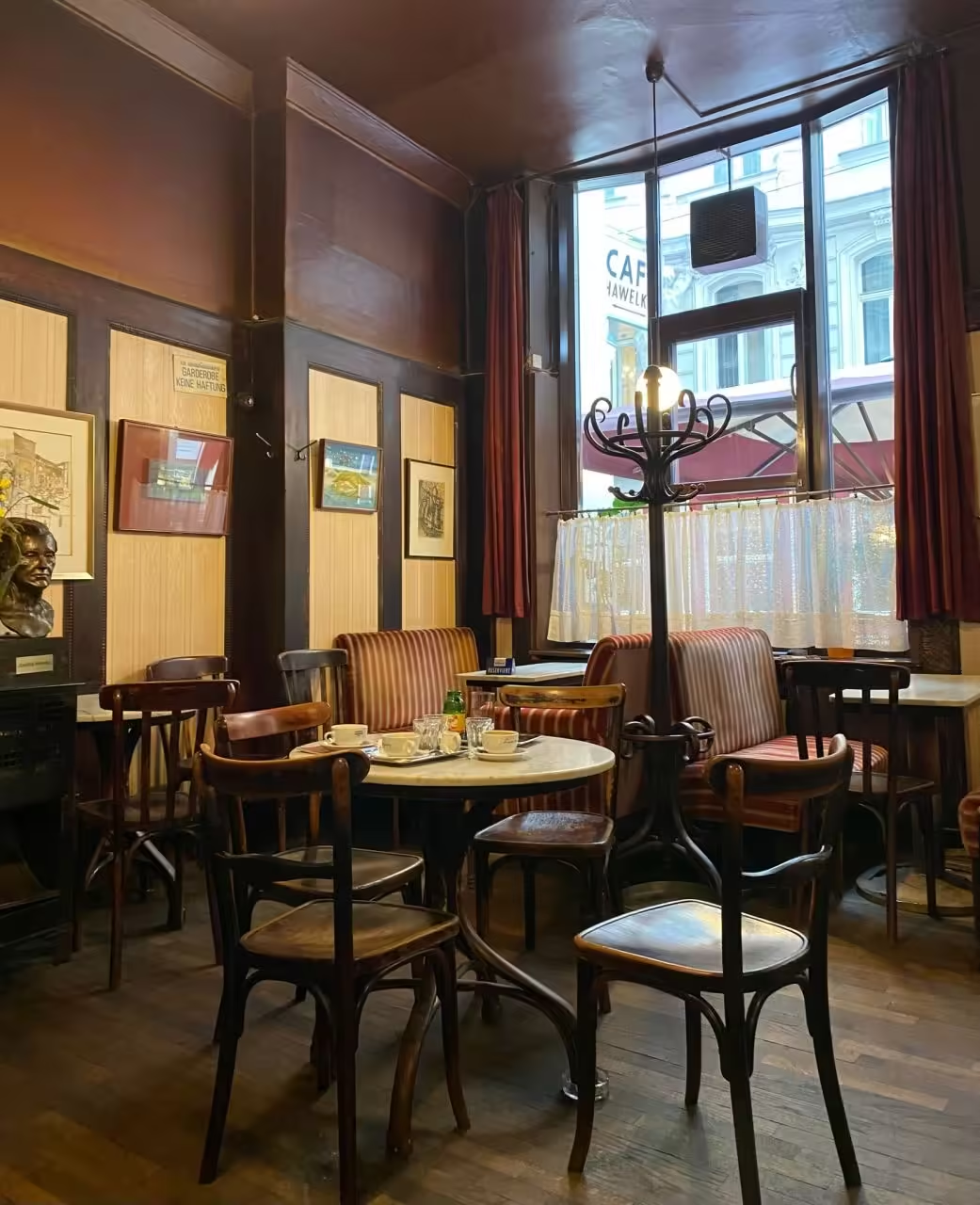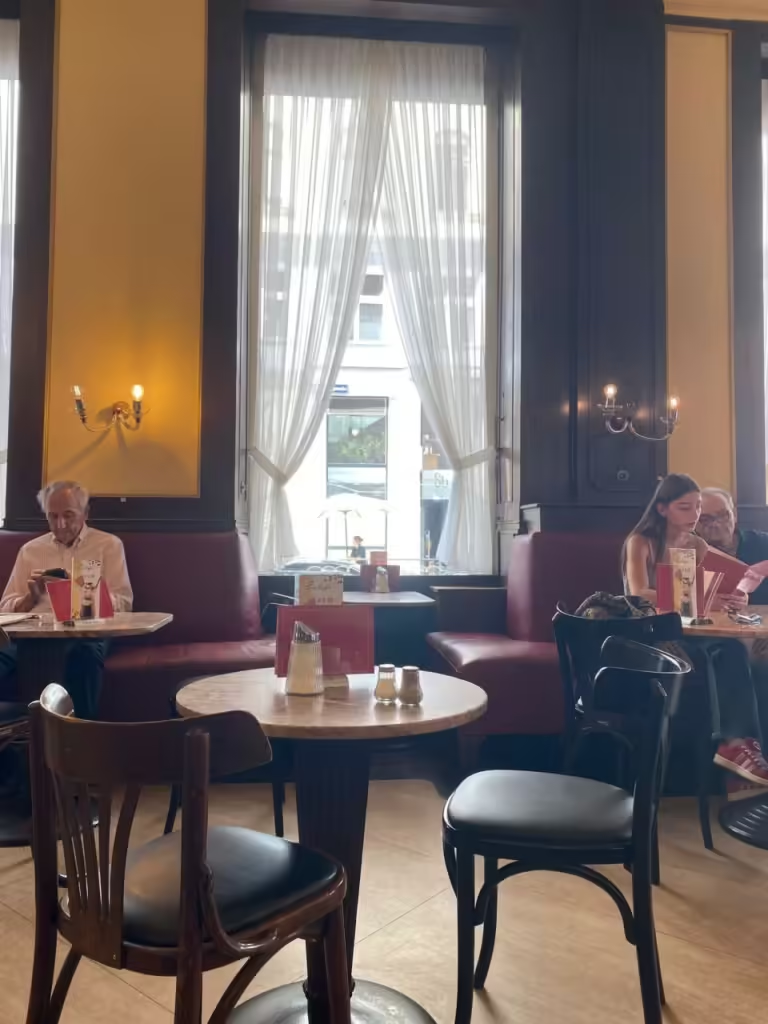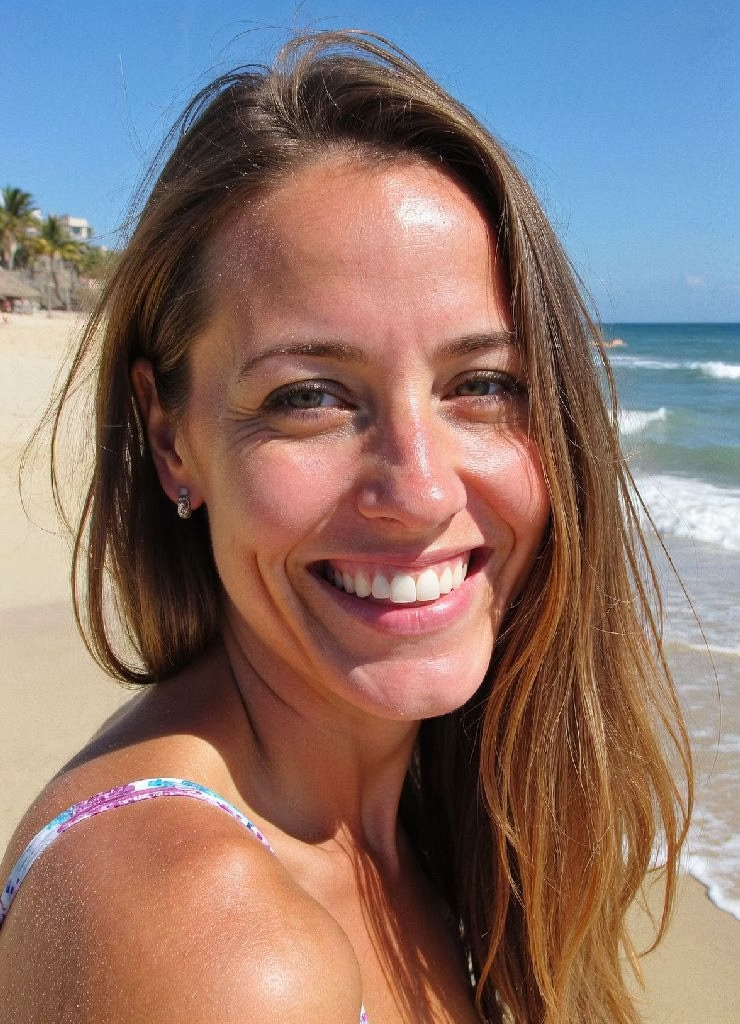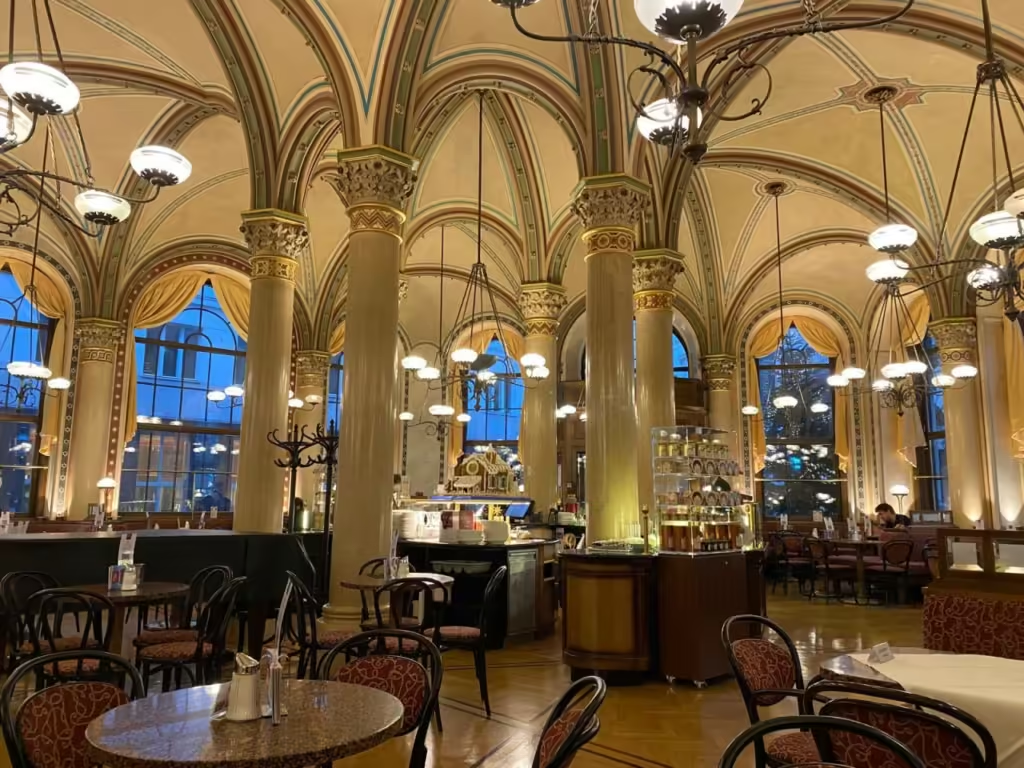Last Updated on
Vienna’s coffee house culture is world-renowned and even recognized by UNESCO as an intangible cultural heritage. These establishments are more than just places to grab a cup of coffee; they are social hubs where people gather to chat, read, work, or simply watch the world go by. Here’s a list of some of the best places to experience Vienna’s coffee culture:
1. Café Central
- Location: Herrengasse 14, 1010 Vienna
- Description: Café Central is one of Vienna’s most famous and historically significant coffeehouses. Opened in 1876, it quickly became a meeting place for intellectuals, writers, and politicians, including Sigmund Freud and Leon Trotsky. The grand interior, with its high ceilings, chandeliers, and marble columns, exudes old-world charm. The café offers a wide selection of Viennese pastries, traditional coffee specialties, and light meals.
- History: Café Central has been a cultural hub since the late 19th century, attracting the likes of Arthur Schnitzler and Peter Altenberg. It was a place where ideas were exchanged, and many literary and political movements took root.
- Price Range: Moderate to High (Coffee around €5, pastries from €4-7)
- Popularity: Highly popular among tourists and locals; it can get crowded, especially during peak hours.
- Interesting Facts: Peter Altenberg, an Austrian poet and regular at Café Central, was so associated with the café that he had his mail delivered there.

2. Café Sacher
- Location: Philharmoniker Str. 4, 1010 Vienna
- Description: Café Sacher is part of the famous Hotel Sacher and is the birthplace of the world-famous Sachertorte, a rich chocolate cake with apricot jam. The café’s luxurious interior features elegant wood paneling, plush seating, and historic portraits. It’s an iconic spot for experiencing the Viennese coffeehouse tradition.
- History: The café opened in 1876, and the Sachertorte was created by Franz Sacher in 1832. The recipe remains a well-guarded secret and is a must-try for visitors.
- Price Range: High (Coffee around €6-7, Sachertorte slice €8-9)
- Popularity: Extremely popular with tourists; there is often a line, but the experience is well worth the wait.
- Interesting Facts: The recipe for Sachertorte was the subject of a famous legal battle between the Sacher and Demel families, known as the “cake war” in Vienna.

3. Café Demel
- Location: Kohlmarkt 14, 1010 Vienna
- Description: Café Demel, founded in 1786, is one of Vienna’s most historic and prestigious coffeehouses. Known for its exquisite pastries and desserts, Demel offers a luxurious experience with its elegant decor, featuring chandeliers, mirrors, and marble tables. The café also has an open kitchen where you can watch the pastry chefs at work.
- History: Demel was once the purveyor to the Imperial and Royal Court of Austria, and it still exudes an air of imperial luxury. The café’s desserts are legendary, particularly the Demel Sachertorte, which is a close rival to the one served at Café Sacher.
- Price Range: High (Coffee around €6, pastries €5-8)
- Popularity: Very popular, especially with tourists seeking a taste of imperial Vienna.
- Interesting Facts: Café Demel is famous for its elaborate window displays, particularly during the holiday season, which often attract crowds of onlookers.

4. Café Hawelka
- Location: Dorotheergasse 6, 1010 Vienna
- Description: Café Hawelka is a bohemian coffeehouse that has retained its vintage charm since it opened in 1939. It has a more intimate, slightly worn-in atmosphere, making it a favorite among artists, writers, and students. The café is particularly famous for its Buchteln, a type of sweet yeast bun filled with jam.
- History: Founded by Leopold Hawelka and his wife Josefine, the café became a hub for Vienna’s artistic community in the post-war period. It has remained a family-run business, preserving its original character.
- Price Range: Moderate (Coffee around €4-5, Buchteln €3.50)
- Popularity: Popular among locals and those seeking an authentic Viennese coffeehouse experience.
- Interesting Facts: The café’s interior has remained largely unchanged since it first opened, giving visitors a true sense of Vienna’s mid-20th-century café culture.

5. Café Landtmann
- Location: Universitätsring 4, 1010 Vienna
- Description: Café Landtmann is a grand and elegant coffeehouse that has been a favorite meeting place for politicians, celebrities, and intellectuals since its opening in 1873. The interior is plush and sophisticated, with dark wood paneling, leather seats, and large windows offering views of the Ringstrasse.
- History: Over the years, Café Landtmann has hosted many famous guests, including Sigmund Freud, Marlene Dietrich, and Paul McCartney. It is known for its exceptional service and high-quality food.
- Price Range: Moderate to High (Coffee around €5-6, pastries €4-7, meals €15-25)
- Popularity: Very popular with locals and tourists alike, particularly for business meetings and leisurely afternoon coffees.
- Interesting Facts: Café Landtmann has been featured in several films and TV shows, cementing its status as a cultural landmark in Vienna.

6. Café Ritter
Café Ritter is located in the heart of Vienna’s bustling Mariahilf district, on Mariahilfer Straße, one of the city’s main shopping streets. Its central location makes it a popular stop for both locals and tourists exploring the area.

- Location: Mariahilfer Str. 73, 1060 Vienna, Austria
- Description: Café Ritter is one of Vienna’s iconic traditional coffeehouses, offering a quintessential Viennese café experience. The café’s interior exudes old-world charm with elegant chandeliers, high ceilings, and large mirrors. Its wood-paneled walls, plush velvet seating, and marble tabletops reflect the grand coffeehouse culture that Vienna is renowned for. The café is a perfect spot for enjoying a leisurely coffee, reading a newspaper, or having a light meal in a timeless, cozy setting.The menu features a wide variety of traditional Viennese coffees such as Melange and Einspänner, along with classic Austrian dishes like Wiener Schnitzel, Apfelstrudel, and Sachertorte. It’s also a popular place for breakfast, serving fresh pastries and bread with a variety of spreads, cheeses, and meats.
- History: Café Ritter opened its doors in 1877, making it one of Vienna’s oldest coffeehouses. During its early years, it became a meeting place for intellectuals, artists, and writers who gathered to discuss politics, culture, and the arts, a tradition typical of Viennese coffeehouses. The café has witnessed many historical events and remained a cherished institution despite changing ownership and periods of renovation over the years.In the early 20th century, Café Ritter was particularly popular among artists and bohemians, contributing to its reputation as a hub of creativity and conversation. Despite modernizing efforts, the café has preserved much of its historical atmosphere, retaining its status as a traditional Viennese coffeehouse.
- Price Range: Moderate:
- Coffee: €4-6
- Pastries and Cakes: €4-7
- Main Courses: €10-20
- Breakfast Menu: €8-15
- While not as expensive as some of Vienna’s more upscale cafés, Café Ritter offers a moderately priced menu, making it accessible for both tourists and locals seeking a traditional Viennese coffeehouse experience.
- Popularity: Café Ritter is a popular destination among both locals and tourists. Its prime location on Mariahilfer Straße makes it an ideal spot for people-watching, especially after a day of shopping or sightseeing. The café has a loyal customer base, including those who appreciate the historic ambiance and enjoy the slower, more contemplative pace that Vienna’s coffeehouse culture encourages.While it attracts a steady stream of visitors, Café Ritter is known for being less crowded than more tourist-heavy spots like Café Central or Café Sacher, making it a quieter alternative for those seeking a traditional experience in a relaxed setting.
- Interesting Facts:
- Café Ritter’s association with the arts: The café has been a popular spot for Viennese intellectuals, writers, and artists since its early days. The coffeehouse once hosted informal gatherings of creative minds, reflecting the intellectual coffeehouse culture that is part of Vienna’s heritage.
- Renovation in the 21st century: In the mid-2000s, Café Ritter underwent a significant renovation to restore its historic interior while upgrading its amenities. The café managed to strike a balance between modernizing for today’s clientele and maintaining its 19th-century elegance.
- Filming location: Due to its authentic Viennese atmosphere, Café Ritter has been used as a filming location for various TV shows and movies, further cementing its place in popular culture.
- Timeless ambiance: Despite renovations, Café Ritter has preserved much of its original décor, making it a timeless snapshot of Vienna’s famed coffeehouse culture. The café’s chandeliers, mirrors, and velvet furnishings evoke the charm and sophistication of a bygone era.
Café Ritter offers a charming escape from the hustle and bustle of Mariahilfer Straße, allowing visitors to immerse themselves in Vienna’s coffeehouse tradition, which has been recognized by UNESCO as an intangible cultural heritage. Whether for a morning coffee, a midday snack, or an afternoon pastry, it remains one of the city’s treasured spots.
6. Café Sperl
- Location: Gumpendorfer Str. 11, 1060 Vienna
- Description: Café Sperl offers an authentic Viennese coffeehouse experience with its traditional wooden booths, billiard tables, and old-world charm. Opened in 1880, the café has maintained its historical interior, making it a favorite spot for those who appreciate the classic Viennese coffeehouse atmosphere.
- History: Café Sperl has been a popular gathering place for artists, musicians, and writers since the late 19th century. Its clientele has included some of Vienna’s most notable cultural figures.
- Price Range: Moderate (Coffee around €4.50, pastries €4-6)
- Popularity: Popular with both locals and tourists, Café Sperl offers a quieter, more relaxed atmosphere compared to some of the more famous coffeehouses.
- Interesting Facts: Café Sperl has appeared in several films and was the inspiration for a fictional café in the novel The Piano Teacher by Elfriede Jelinek, a Nobel Prize-winning Austrian author.
Conclusion
Vienna’s coffeehouses are more than just places to enjoy a cup of coffee—they are cultural institutions that have played a significant role in the city’s social and intellectual life for centuries. Whether you choose to visit the grand Café Central, indulge in a slice of Sachertorte at Café Sacher, or experience the bohemian atmosphere of Café Hawelka, you’ll be immersing yourself in a tradition that is uniquely Viennese.

Andrea is a travel writer who splits her time between Austria and Croatia, drawing from both to tell grounded, engaging stories about culture, food, and local life. With a sharp eye for detail and a no-nonsense style, she covers everything from alpine villages and Viennese cafés to Adriatic islands and Dalmatian coastlines. Her work captures the rhythms of everyday life in both countries, beyond the tourist traps, always focused on what’s real, interesting, and worth experiencing. When she’s not writing, she’s hiking, swimming, or hunting down the best coffee in town.

